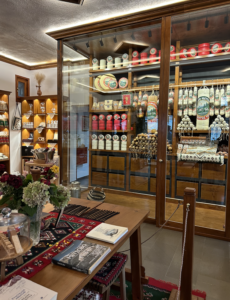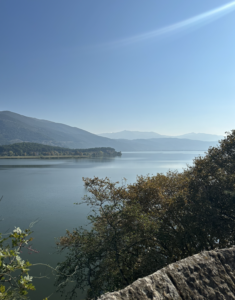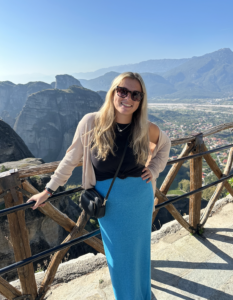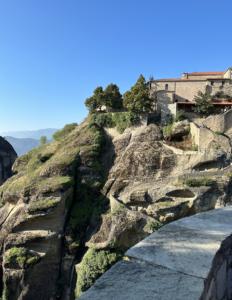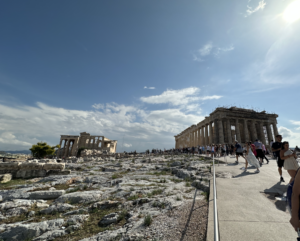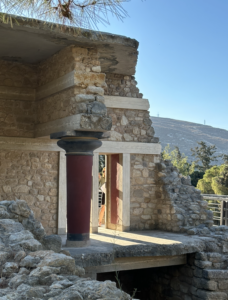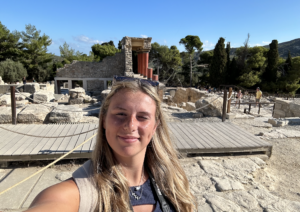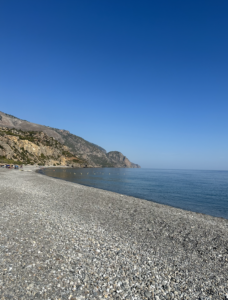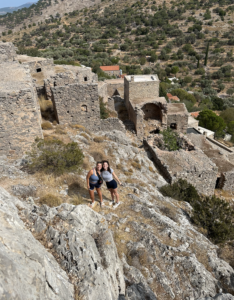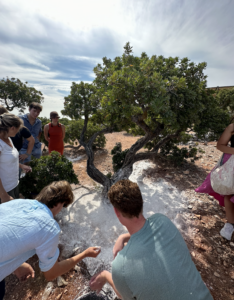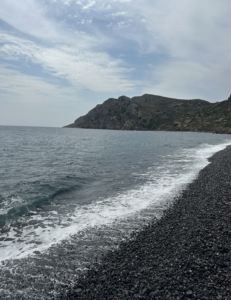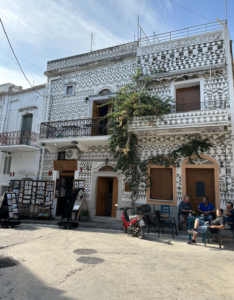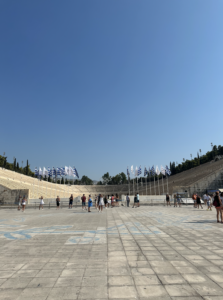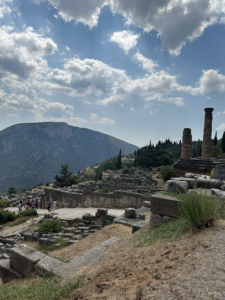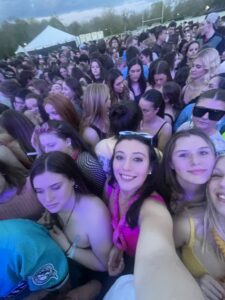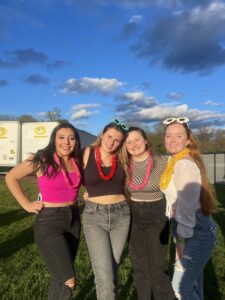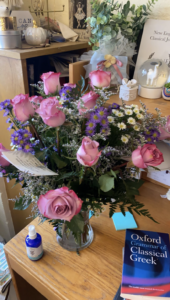At this point in my life, it’s only natural to have moments of self-doubt, feelings of stress about the future, or fear of the unknown (And, many joyful moments among these!). But, I always imagined that upon returning from studying abroad in Athens, I would have “figured something out” about myself. Spoiler alert: I didn’t. Yet, I wouldn’t have traded my semester in Athens for the world.
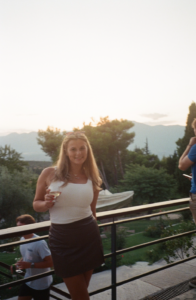
What attracted me most to studying in Athens was the deep connection to the Classical world with its rich tradition, thought, and literature. Although Holy Cross is a liberal arts school, I often feel like studying the humanities is not entirely worthwhile. It feels like there’s this declining appreciation of disciplines that were once hallmarks of intellectual greatness, now just deemed “soft” or even “impractical.” I will admit that there are times that I allow this perception to overcome my passion and fill myself with so much distrust and hesitancy: it’s human nature.
In my attempt to “figure myself out,” I asked these key questions during my time in Athens concerning my relationship as a Classicist: Why is it so worthwhile to keep learning about the ancient world? What is in these stories that makes them so important to pass on to the next generation?
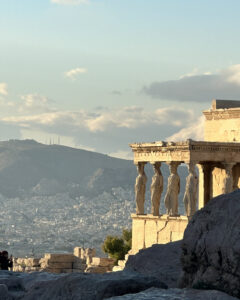
Tough questions. I know. Still, they’re at the root of why I keep studying Classics. While at Holy Cross, I read literature of various genres, including historical accounts, mythological stories, and epic poems in the Mediterranean area. It was extraordinary to see the archaeological sites and ancient towns where these stories were set and written. But, there is one thing that impressed me the most: to allow the natural world to speak to us; among the great mountains of the Peloponnese, the volcanic beaches of Santorini, or overlooking the peak of Mount Olympus, it is no wonder these stories feel so divinely inspired.
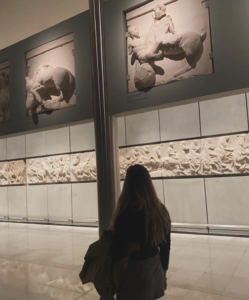
And maybe that’s part of why these stories are so important. The natural world, at least in my perspective, does not nearly invoke the same emotions as it did in the past. Now, I approach my work with a freshly inspired perspective, understanding a piece of the ancient world I never expected to see. During my time in Greece, I took a full course load, but I also had the opportunity to volunteer at a local school, practicing English with native Greek speakers. This once-in-a-lifetime experience allowed me to better integrate myself into the Athenian community while making a meaningful contribution.

Being in Greece, I constantly found many historical and mythological stories around me. Even when I wasn’t in class, we were able to think about the course in places far from Athens, like healing surrounding the worship of Asclepius in Epidaurus in the Peloponnese or Theseus and the Minotaur at the Palace of Knossos on the island of Crete. Everyone can feel connected to these stories because the themes are fundamental to understanding the human condition. Since then, we have been defiant in our literature and culture regarding politics, gender ideology, and basic morality. These things will always remain the same way we can and should continue to explore their meanings in ancient texts.
In the ever-changing world, I sometimes question if it’s truly important, or even worth it, to keep studying these stories. In my deepest periods of doubt, there often is a moment that makes me remember the universality of these stories – their attention to human relationships, to the role of fate and the divine, to conceptions of justice, or to what we consider heroic – and how we need them if we want to understand our world—these moments occurred standing in the center of Artemis’ temple in Brauron, watching a performance of Sophocles’ Electra in the ancient theater of Herodes Atticus, studying the Parthenon marbles next to the Parthenon itself.
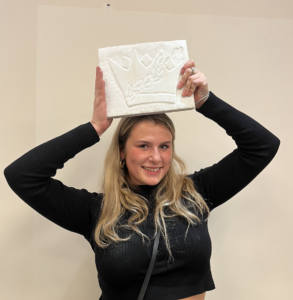
I am genuinely indebted to Athens, and even the entire country of Greece, for fostering me as a student and worldly individual. I am truly grateful to have experienced the beautiful nature of the Mediterranean and come up close to the deep traditions of a timeless culture. I’m back on The Hill now, but I’ll be sure to keep practicing my Modern Greek. Bye for now. Και, ευχαριστώ Αθήνα.


